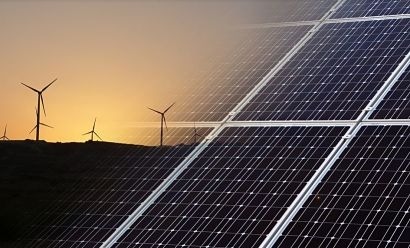
Dubbed the Clean Energy Future Plan, the new legislation will require Michigan utilities to acquire 15 percent of electricity from renewable energy sources - such as wind or solar - through 2029 and then increase the amount of electricity from renewables to 50 percent by 2030, 60 percent by 2035, and 100 percent by 2040. The new plan sees Michigan join 11 other states with commitments to reach 100 percent clean energy net-zero future on a similar schedule.
Additionally, Michigan’s new clean energy laws grant authority to the Michigan Public Service Commission to approve large solar, wind, and battery storage projects and make it easier to deploy clean energy in the state.
“This is a major step forward for Michigan, and we want to recognise Governor Whitmer and the Michigan Legislature for their leadership on these critical energy issues” said Erika Kowall, Director, Midwest State Affairs, American Clean Power Association (ACP). “This new legislation works to secure Michigan’s clean energy future but also to make certain the state is positioned to benefit from the valuable new jobs, tax revenue, and ongoing investment that renewable energy brings. Michigan is already fifth in the nation for clean energy jobs - currently numbering 124,000 - and the Clean Energy Future Plan puts the state in position to see many years of new opportunities and growth resulting from clean energy. ACP looks forward to continuing to work with Michigan leaders to help unleash the state’s full clean energy potential.”
Michigan’s new clean energy laws also drew praise from Clean Grid Alliance (CGA), which works to advance renewable energy in the Midwest.
“CGA applauds the incredible leadership the Michigan Legislature and Governor Whitmer have shown to advance strong clean energy policies that will pave the way for the Michigan to become carbon free” said Peder Mewis, Regional Policy Director, Clean Grid Alliance. “Siting and permitting has been the largest roadblock to deploying renewable projects in Michigan, and the reforms in this package will ensure a predictable and stable permitting environment that will unlock billions in economic development across the state for decades to come.”
For additional information:

